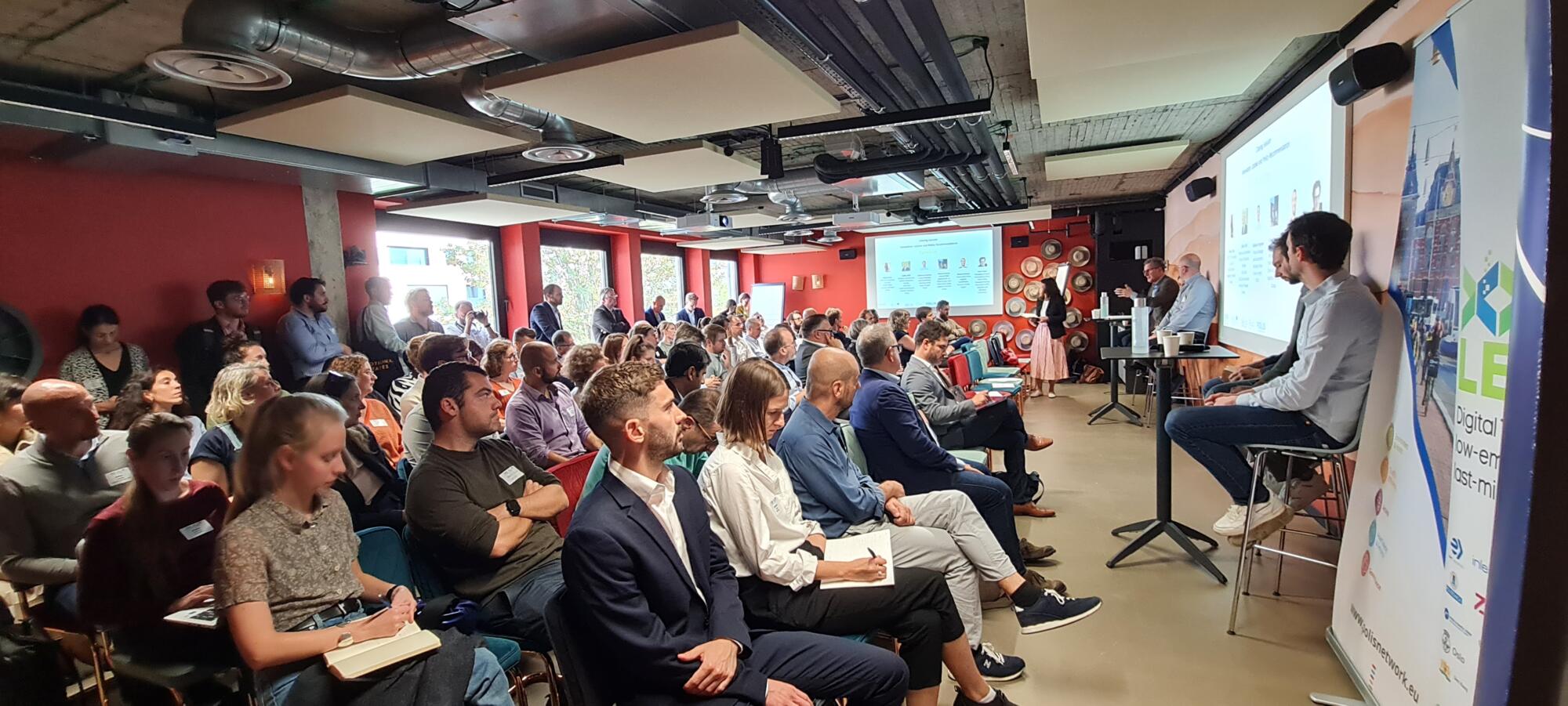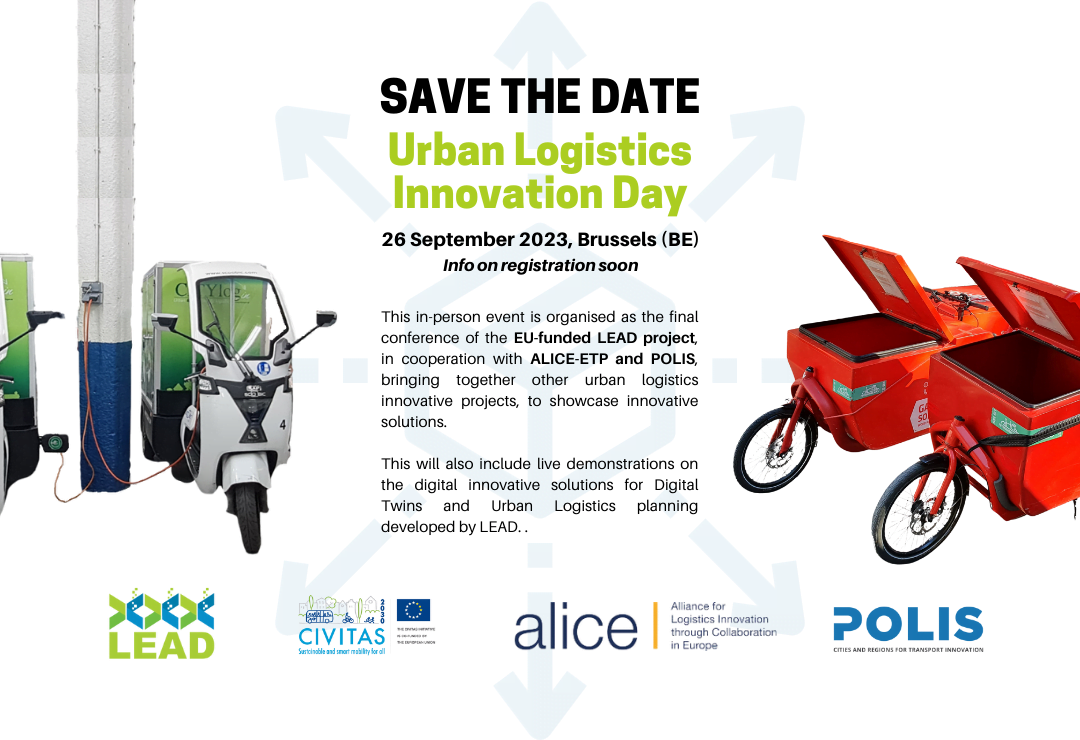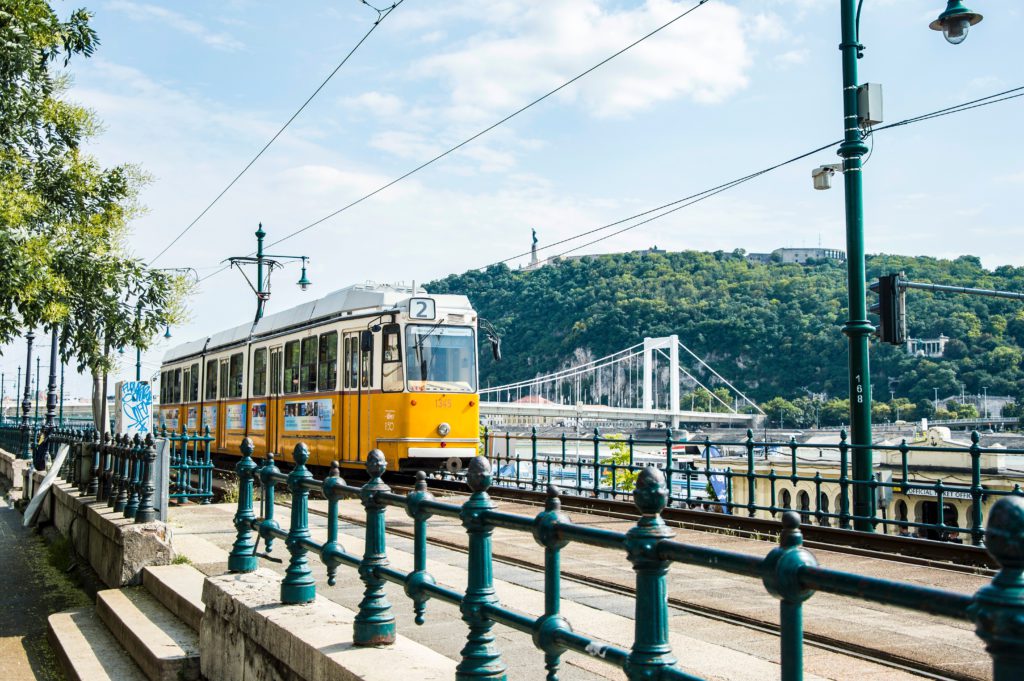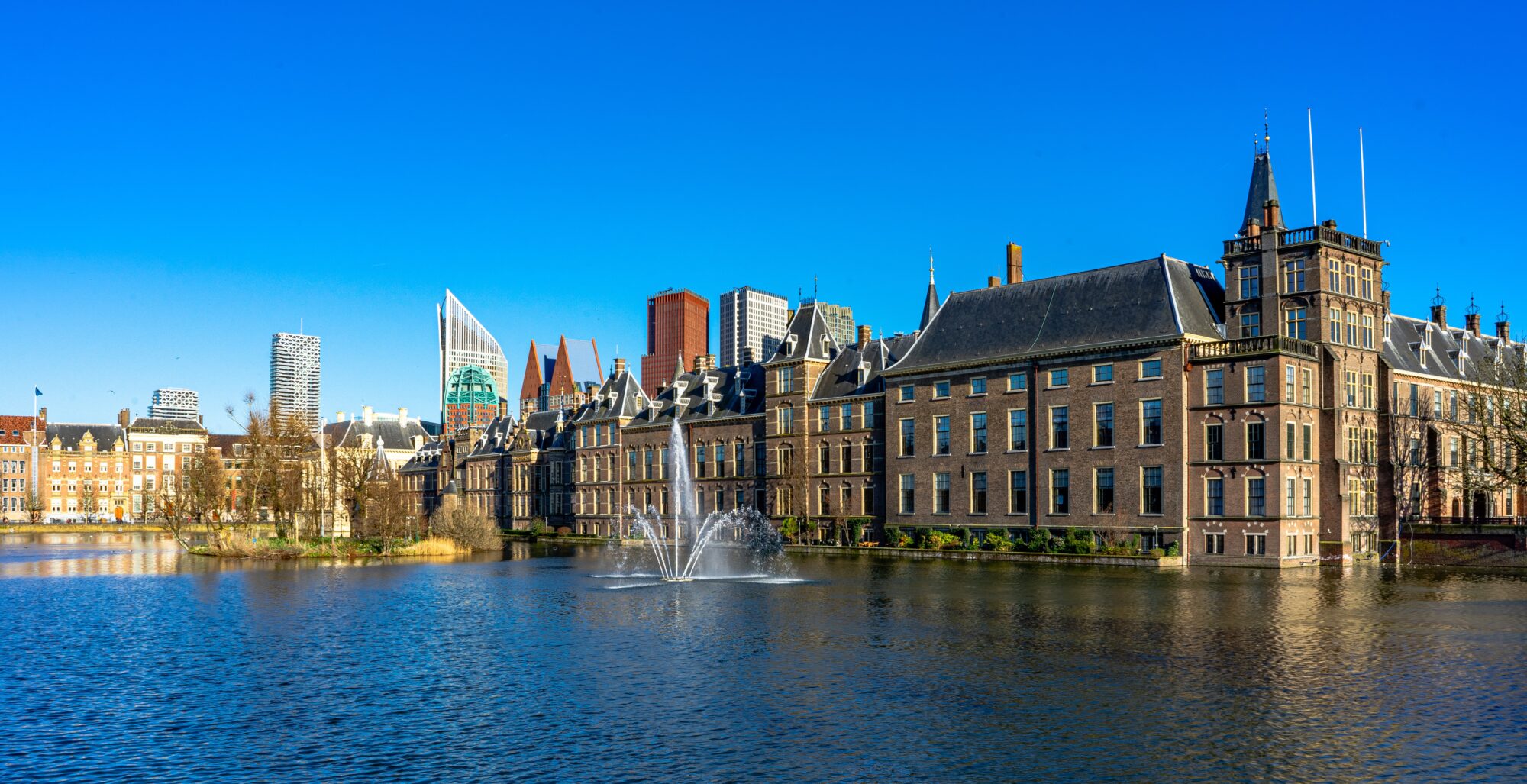Digital Twins and Urban Logistics in focus: LEAD conference draws over 100 participants
Urban freight transport has been increasing due to enhanced demand in e-commerce and business activities in cities.
Decarbonise urban freight transport is a challenge for many cities while business and logistics operators also face challenges in increasing efficiency and meeting customers’ demands. Innovation plays an important role in decarbonising urban freight transport and enabling sustainable urban logistics. The LEAD Final Conference brought together innovation practitioners in the urban logistics sector to promote the use of innovative solutions to help cities and businesses meet their sustainable goals.
On 26 September the long-awaited Urban Logistics Innovation Day took place in Brussels with the participation of more than 100 representatives from cities, the logistics sector, and academia.
The Final Conference of the LEAD project - co-organised by POLIS and ALICE-ETP - was a unique chance to learn more about the results achieved by the project and to gather experts from ongoing EU-funded projects focusing on urban freight, such as MOVE21, DISCO, URBANE, ULaaDS, SENATOR, GREEN-LOG, DECARBOMILE, among others.
The opening featured welcome remarks by Irene Blázquez Jiménez, the coordinator of LEAD, and keynote speeches by Paola Chiarini from the European Commission's DG MOVE and Pedro Fernández, Head of Department for Planning and Infrastructure at the City of Madrid. The conference also featured a plenary session on "Digital Twins for Low-Emission Last-Mile Logistics: The LEAD Story”, exploring how digital twins and Living Labs can accelerate innovation in logistics, with insights from LEAD partners.
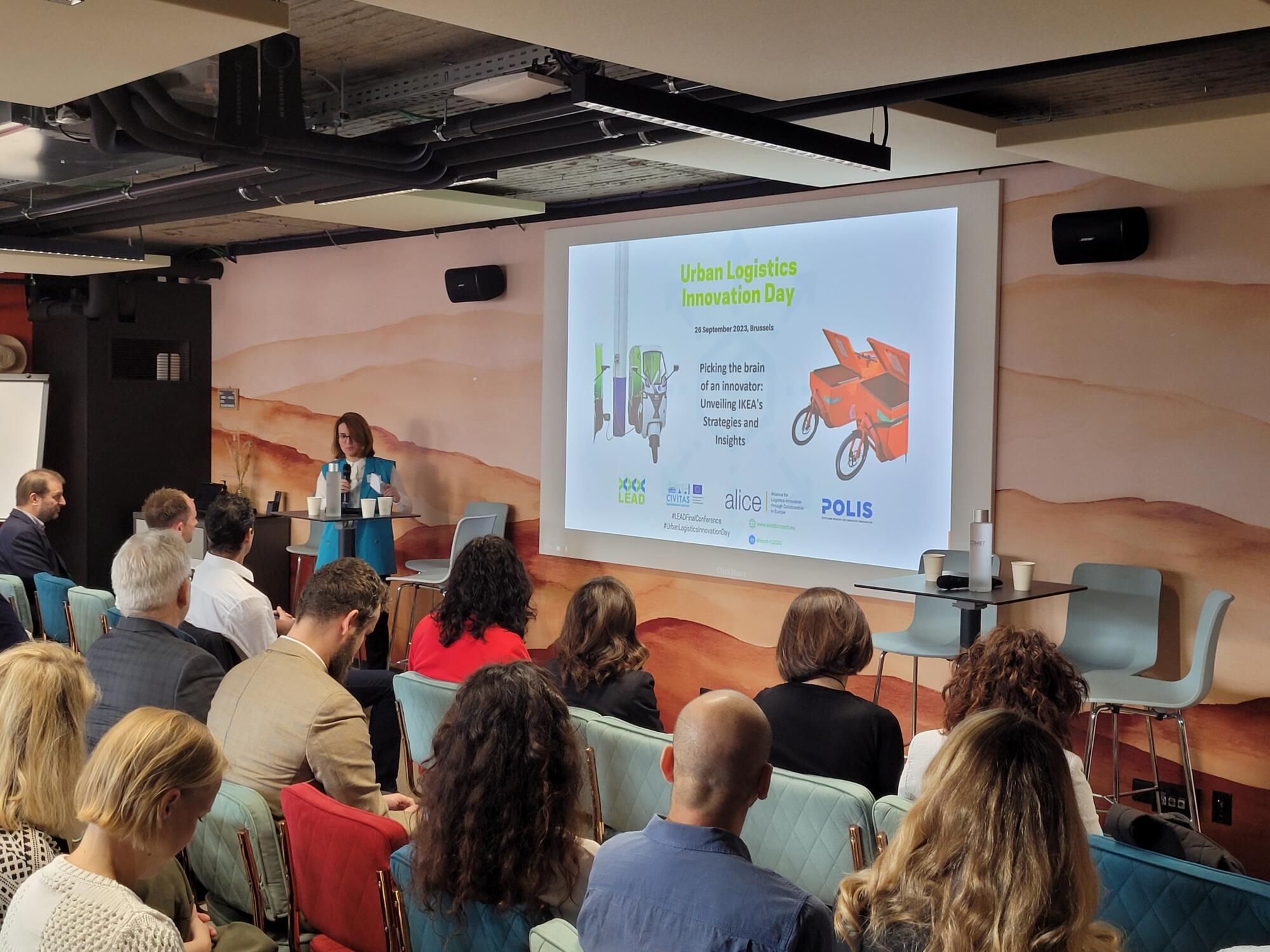
Following the coffee break, the conference split into breakout sessions, where participants had the opportunity to dive deeper into specific topics. These sessions covered digital twins and what-if scenarios, consumer engagement, sustainability of urban freight, and zero-emission vehicles and support infrastructure for the last mile, as well as urban space optimisation and alignment with sustainable urban logistics, including presentations on public-private partnerships. The day concluded with a roundtable discussion exploring innovation uptake and policy recommendations for sustainable urban logistics.
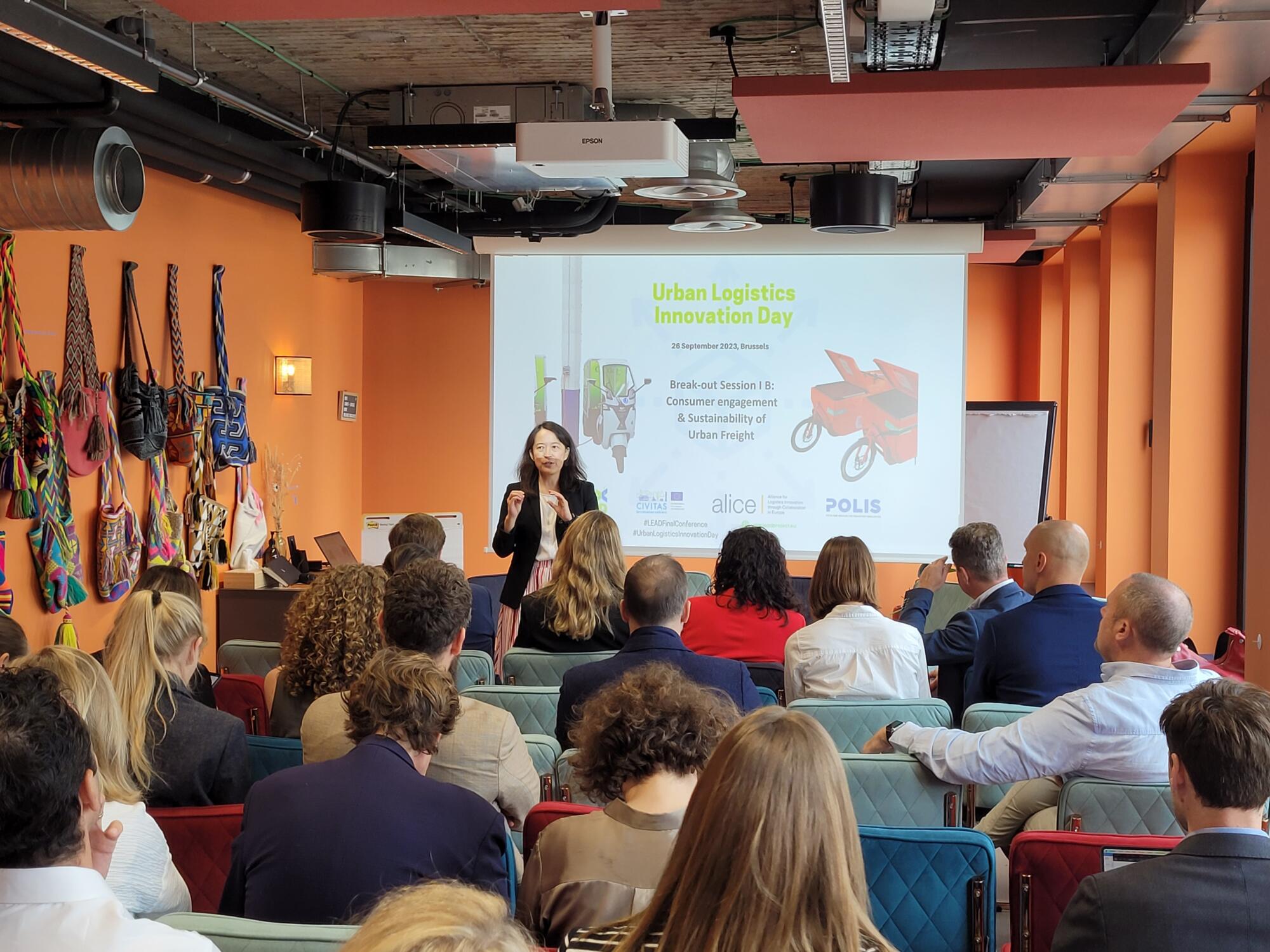
The event served as a platform for experts, innovators, and policymakers to share ideas and shape the future of sustainable urban logistics, with some key learnings coming to the fore:
- The impact of digital twins on urban logistics is concrete and potentially scalable.
- The key role of Living Labs and co-creation activities in shaping new business models and public-private partnerships.
- The a need for more exchange of experiences and measurement of impact.
To achieve these goals, cooperation between companies and local governments is essential to greener and more efficient urban logistics.
Keep your eyes out for the publication of the final LEAD results, including further details about the LEAD Platform and Policy Recommendations on the uptake of Digital Twins for Urban Freight.
For more information please contact Cláudia Ribeiro or Raffaele Vergnani.
